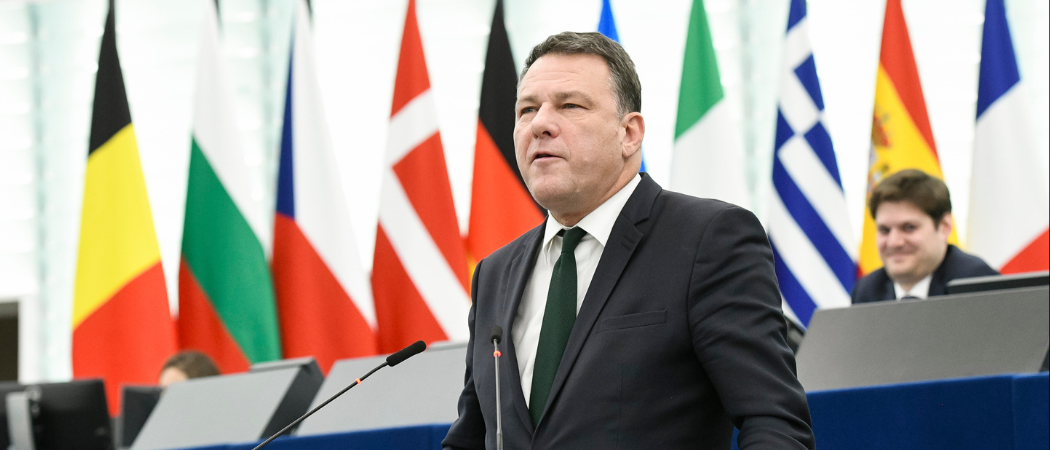The foreign affairs committee has joined in criticism of the Commission, with MEPs saying they are being locked out of politically sensitive association talks with countries outside Europe

Jean-Lin Lacapelle MEP, who sits on the European Parliament's Committee on Foreign Affairs. Photo: Genevieve Engel / European Union
Two parliamentary committees have voted through a motion condemning the European Commission for not giving MEPs “meaningful consent” over a raft of new Horizon Europe association agreements with countries like New Zealand and Canada.
The Commission has sought to expand Horizon Europe association outside the continent to rich democracies worldwide, and New Zealand and Canada have already agreed to join. South Korea and Japan are in talks.
But MEPs are concerned that they are not being given enough information about or say over negotiations which they argue are highly political and need wider democratic oversight.
MEPs on the parliament’s Industry, Research and Energy committee ITRE, have complained about this issue before.
But today they were joined by the parliament’s Foreign Affairs committee in a joint session, to near unanimously vote through a motion criticising the Commission.
“When the Commission negotiates treaties with third countries this should be done with complete transparency, and we who represent the European citizens should have an opportunity to express through our vote the will of the European people,” said Jean-Lin Lacapelle, a French MEP who sponsored the motion alongside Horizon Europe rapporteur Christian Ehler.
This sets the stage for a vote of all MEPs on the motion in a future plenary session. If passed, this should rachet up the pressure on the Commission to compromise.
The expansion of Horizon Europe to countries outside Europe has opened up all kinds of geopolitical questions about which states constitute “likeminded” research partners for the EU.
Associating the likes of Canada, New Zealand, Japan and South Korea is - for now - politically uncontroversial. But Commission officials have also scoped out the association of Singapore, which is not a competitive liberal democracy.
MEPs support this expansion, but want more of a say on what they argue is a political choice.
“The association of third countries to the EU programmes is not a mere technical act, but it is a political decision concerning the associated countries’ relations with the EU and, specifically for Horizon Europe, the issue of scientific and academic freedom,” the motion for a resolution, agreed today, reads.
“Given the novelty of these agreements, the Parliament has not relevant data or information to meaningfully assess the impact these agreements might have on the current generation of Union Programmes or on future generations of Union Programmes,” it says.
So far, MEPs have refused to vote to approve association agreements with the Faroe Islands and New Zealand.
But the motion gives no clue as to whether MEPs would ever actually vote against the agreements – a nuclear option that would bring to an abrupt halt to New Zealand’s association to Horizon Europe and puncture the Commission’s entire agenda to internationalise the framework programme.
Despite their concerns with how the deal with New Zealand was negotiated, the MEPs were at pains to stress that the country is a good research partner for the EU.





 A unique international forum for public research organisations and companies to connect their external engagement with strategic interests around their R&D system.
A unique international forum for public research organisations and companies to connect their external engagement with strategic interests around their R&D system.